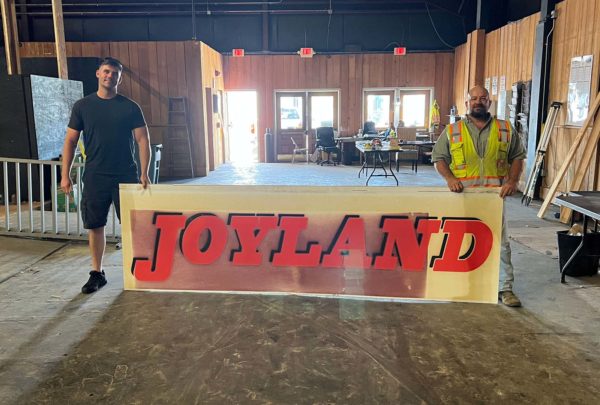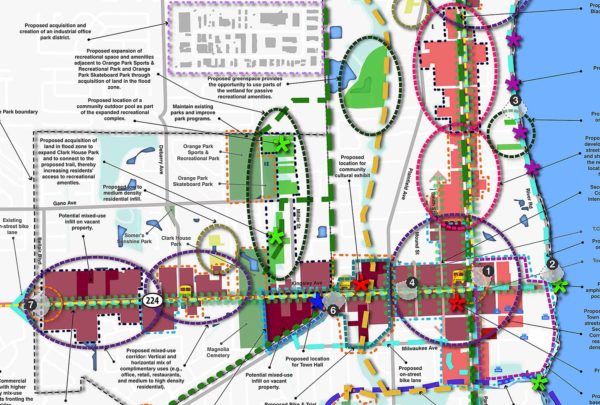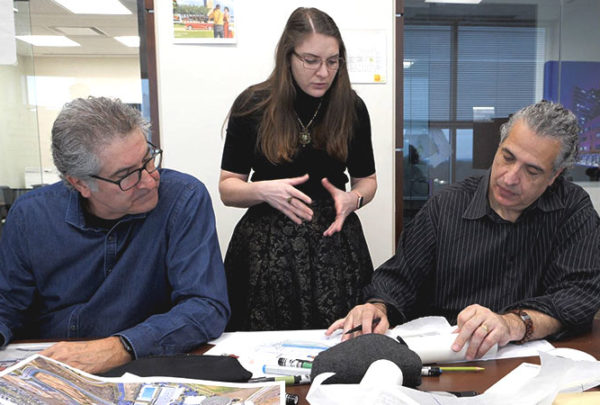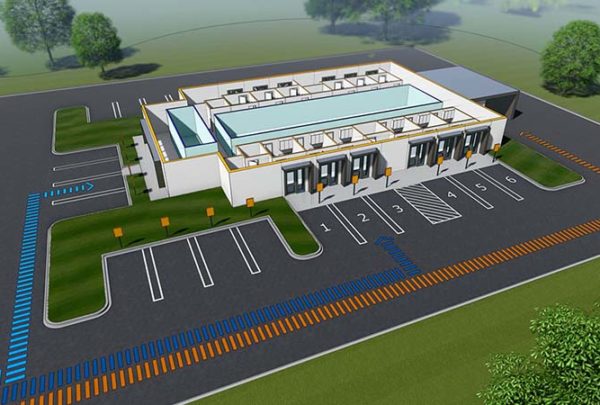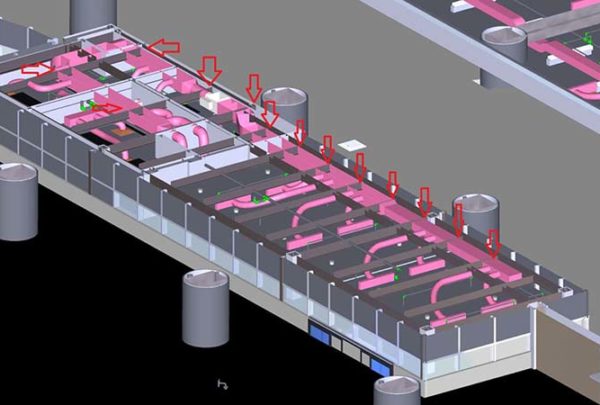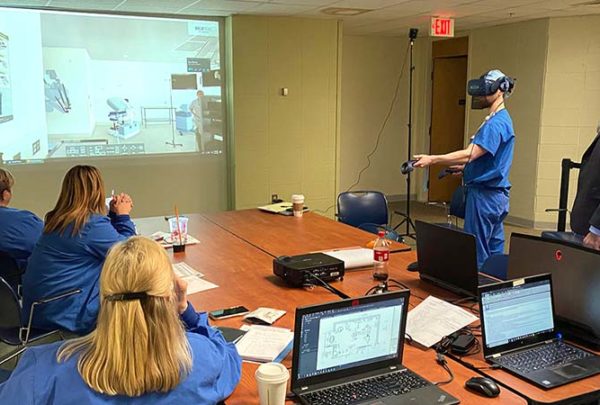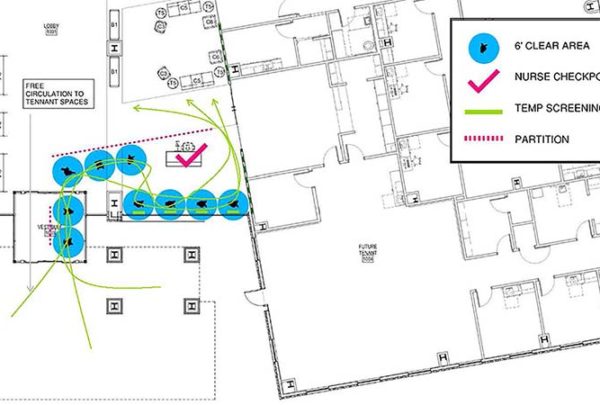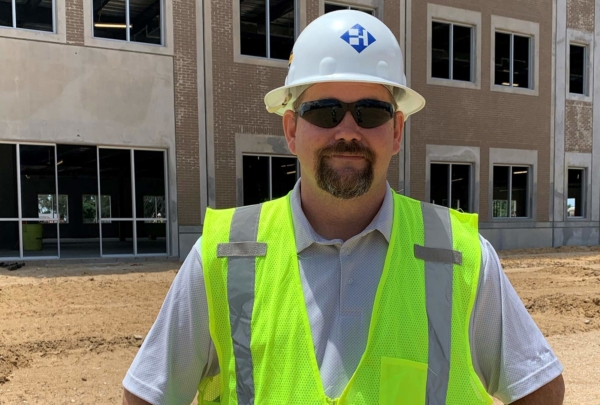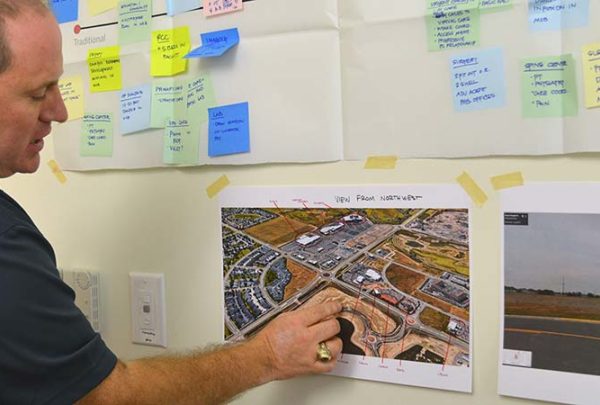Since 1892, Haskell has embraced the evolution of documentation methods ranging from 2D pen/pencil and paper and 2D electronic drafting, to 3D parametric modeling and Building Information Modeling (BIM).
The National Institute of Building Sciences (NIBS) defines BIM as “a digital representation of physical and functional characteristics of a facility. It serves as a shared knowledge resource for information about a facility forming a reliable basis for decisions during its lifecycle from inception onward.”
Haskell has invested in the development and growth of BIM execution and implementation through in-house training, BIM workflow/lessons-learned updates, BIM Quality Improvement Process (BIM QIP), yearly core BIM lead and coordination team training at Autodesk University, as well as Professional Software Certification opportunities that keep us connected with the industry. These approaches provide state-of-the-art information and guidance that has kept us on the leading edge of this key technology throughout the years.
As part of our BIM Infrastructure, we have adopted the culture of assigning project staff as BIM Captains for each project in lieu of a “BIM Manager” not associated with the project, as many other firms have adopted. Many BIM Managers are software experts but do not necessarily have AEC experience. Their approaches are based more in theory rather than practice, which causes users to quickly stop following standards. Our BIM Captains are BIM specialists who are knowledgeable in both Architecture/Engineering and BIM software (Autodesk Revit) while working on projects. Our BIM Captains are trained and led by a Senior BIM Coordinator, who created the BIM Guidelines and BIM Execution Plan strategies currently implemented into our projects. The Senior BIM Coordinator is also part of the architecture staff involved in projects like the rest of the BIM Captains.
Following is a typical BIM Project workflow and commonly used guidelines for new BIM project implementation:
- The BIM Execution Plan is included in all Request-For-Proposal (RFP) responses as part of the AIA-G202 document, as well as the Architect/Consultant contract for BIM Project collaboration, AIA-E302.
- The BIM Captain meets with the project’s Project Manager (PM) to establish a BIM strategy, BIM Project Guideline (BPG), and further develop the BIM Execution Plan (BEP) based on the project’s unique scope of work. Upon creation of an initial draft, the BEP is then provided to all consultants during a BIM kick-off meeting, prior to the start/sharing of our BIM models.
- BIM Captain and PM conduct a BIM kick-off meeting with consultants prior to sharing our BIM models.
- BIM Captain conducts an in-house BIM kick-off meeting with the rest of the project team to discuss how the BIM model will be handled based on the kick-off meeting with the consultants.
- BIM Captain meets with staff at set intervals (weekly) to reinforce best practices and to provide and share ongoing project training and lessons learned.
- Two to three weeks before major model delivery milestones (i.e., 50% DD Submission), the BIM Model undergoes a BIM QIP session where two of our BIM Captains, who are not part of the project team, perform a model check-up to ensure the BIM Model is performing optimally to minimize crashes and conflicts prior to the submission.
Aside from BIM Model maintenance and tasks described above, BIM Captains are also responsible for the following:
- Meeting as a BIM Captains’ Group.
- Advising on current best practices.
- Implementing project workflows as discussed during both in-house and consultant BIM kick-off meetings.
- All strategy and training related to Revit issues for the project (troubleshooting).
- BIM Standards and design/graphics standards monitor.
- Project introduction for new team members who may be added after the project’s initial kick-off.
The BIM Lead Coordinator and the BIM Captains meet recurrently to brainstorm ideas on how to improve and advance the BIM strategies as well as to discuss lessons learned and possible ways to avoid problems. The data gathered in these meetings are gleaned by the BIM Lead Coordinator, and all efficient and productive solutions and approaches are discussed during the monthly Healthcare Revit Users Group Meeting. This is where all the BIM users are updated on the upcoming changes and implementations for the BIM workflow, discuss and train the group on common topics, and participate in Q&A sessions.
Properly built BIM Models allow Haskell to not only provide construction documentation for all of our clients’ project needs but also support the ability to analyze the project with solar studies, walkthrough videos, photo-realistic renderings, real-time visualization through a virtual-reality environment, 3D printing, and clash prevention and detection. Inclusion of all the consultants’ models allows us to detect Level-of-Detail (LOD)-appropriate items that could create schedule and budget conflicts.
Haskell's open-minded approach to the technological advances in documentation and visuals in the Architecture, Engineering, and Construction industry has armed project teams with the necessary resources. This approach allows Haskell to meet clients’ project needs with quality services and insight.















